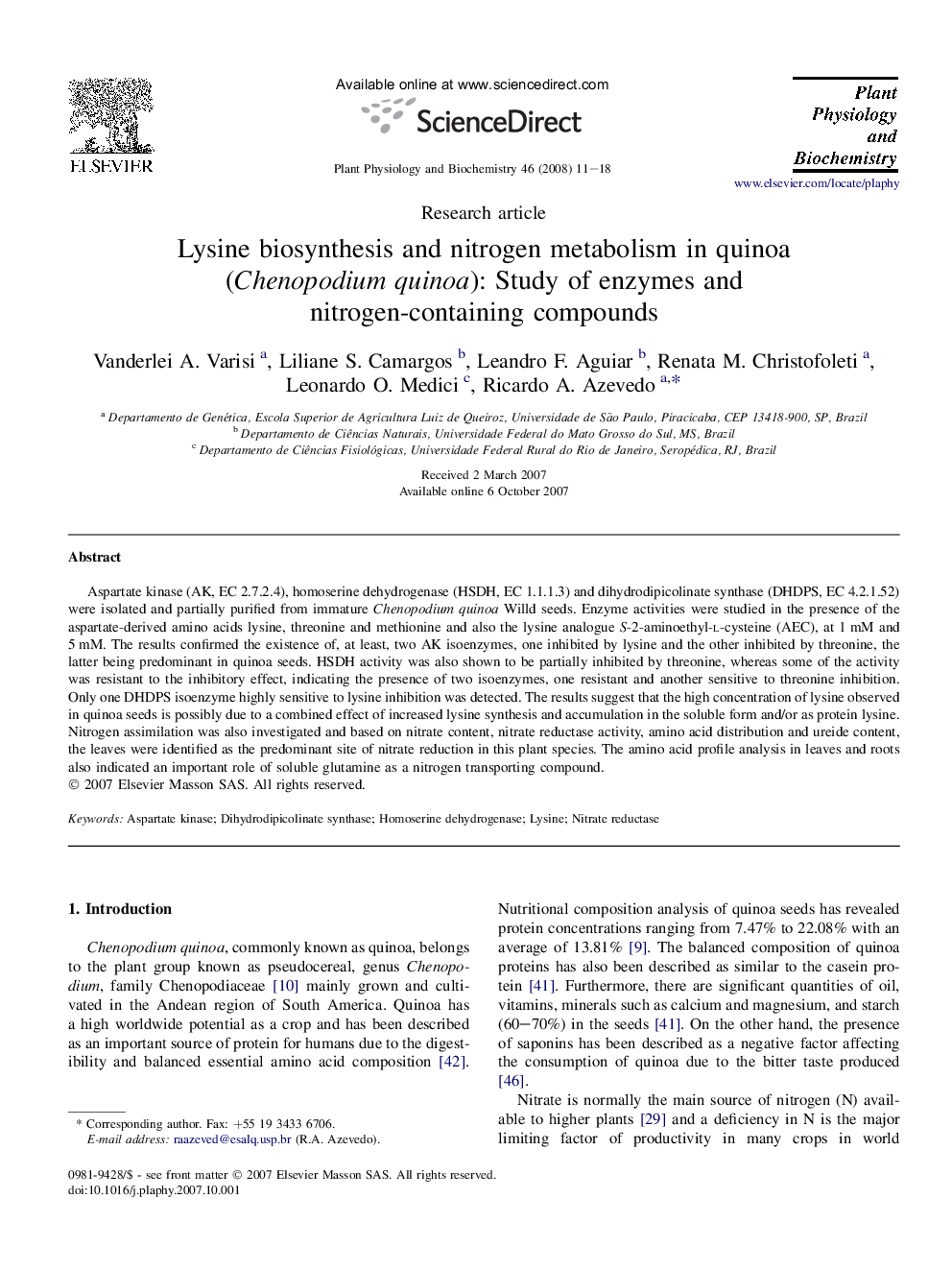| Article ID | Journal | Published Year | Pages | File Type |
|---|---|---|---|---|
| 2015499 | Plant Physiology and Biochemistry | 2008 | 8 Pages |
Aspartate kinase (AK, EC 2.7.2.4), homoserine dehydrogenase (HSDH, EC 1.1.1.3) and dihydrodipicolinate synthase (DHDPS, EC 4.2.1.52) were isolated and partially purified from immature Chenopodium quinoa Willd seeds. Enzyme activities were studied in the presence of the aspartate-derived amino acids lysine, threonine and methionine and also the lysine analogue S-2-aminoethyl-l-cysteine (AEC), at 1 mM and 5 mM. The results confirmed the existence of, at least, two AK isoenzymes, one inhibited by lysine and the other inhibited by threonine, the latter being predominant in quinoa seeds. HSDH activity was also shown to be partially inhibited by threonine, whereas some of the activity was resistant to the inhibitory effect, indicating the presence of two isoenzymes, one resistant and another sensitive to threonine inhibition. Only one DHDPS isoenzyme highly sensitive to lysine inhibition was detected. The results suggest that the high concentration of lysine observed in quinoa seeds is possibly due to a combined effect of increased lysine synthesis and accumulation in the soluble form and/or as protein lysine. Nitrogen assimilation was also investigated and based on nitrate content, nitrate reductase activity, amino acid distribution and ureide content, the leaves were identified as the predominant site of nitrate reduction in this plant species. The amino acid profile analysis in leaves and roots also indicated an important role of soluble glutamine as a nitrogen transporting compound.
